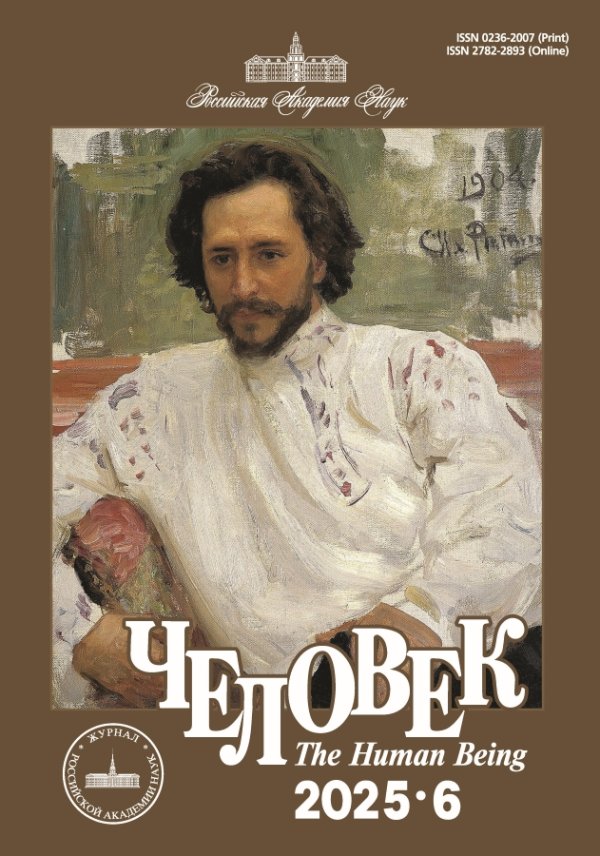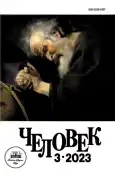Meaning, Subjectness and Responsibilityin Digital Communications
- Authors: Tulchinskii G.L.1,2
-
Affiliations:
- National Research University “Higher School of Economics”
- Immanuel Kant Baltic Federal University
- Issue: Vol 34, No 3 (2023)
- Pages: 73-92
- Section: Scientific research
- URL: https://journals.rcsi.science/0236-2007/article/view/141393
- DOI: https://doi.org/10.31857/S023620070026106-3
- ID: 141393
Full Text
Abstract
Meaning, comprehension and sense formation, subjectness as a responsible self-consciousness and action form the core of human being provided by communication. This paper contains an attempt to answer the question — what do digital communication formats change in this core. There are used the concepts of pragmasemantics and deep semiotics, which allow concretizing the role of socio-cultural practices as meaning-formation interfaces, as well as showing the role of subjectivity as a source, means and result of meaning-formation. The challenges to social and humanitarian knowledge generated by digitalization are systematically considered. It is significant that the consideration of each of the challenges leads to the problem of sane subjectivity. Thus, the analysis of the ethical and legal challenge leads to the need to further clarification of the relationship between control technology and personal parrhesia, to overcome the imbalance of rights and responsibilities. Consideration of the political economic challenge reveals the fact of the emergence of existential rent and, in this regard, new inequalities, perspectives for a new stratification of society. The metaphysical challenge shows the emergence of a human-option and “non-human” subjectness — with the prospect of building a social reality between these two poles. The anthropological challenge opens up prospects for stratification depending on the degree of acceptance and implementation of responsible subjectivity. Thus, the conducted analysis shows the non-eliminable role of subjectness as an integral interface of meaning formation and a key factor of procreativity and pre-adaptation, which ensured and continue to provide the development of civilization. This positions humanitarian knowledge in a new way, the demand for it, and sets also the task of institutionalizing a complexe humanitarian expertise not only of the consequences of new technologies, but of the stages of their design, development and implementation.
About the authors
Grigorii L. Tulchinskii
National Research University “Higher School of Economics”; Immanuel Kant Baltic Federal University16, Soyuza Pechatnikov Str., Saint Petersburg190008, Russian Federation; 14, Alexander Nevsky Str., Kaliningrad 236041, Russian Federation
References
- Асмолов А., Шехтер Е., Черноризов А. Преадаптация к неопределенности: непредсказуемые маршруты эволюции. М.: Акрополь, 2018.
- Гвоздиков Д. Схоластика для инстаграма: к цифровой антропологии современности // Логос. 2019. Т. 29. № 6. С.1–17.
- Гэллоуэй А.Р., Такер Ю., Маккензи У. Экскоммуникация. М.: Ад Маргинем Пресс, 2022.
- Делез Ж. Логика смысла. М.: Академический проект, 2010.
- Золян С.Т., Пробст Н.А., Сладкевич Ж.Р., Тульчинский Г.Л. Фейки: коммуникация, смыслы, ответственность / под ред. Г. Тульчинского. СПб.: Алетейя, 2021.
- Кастру Э.В. де. Каннибальские метафизики. Рубежи постструктурной антропологии. М.: Ад Маргинем, 2017.
- Киященко Л.П. (ред.) Человек как открытая целостность. Новосибирск: Академиздат, 2022.
- Лотман Ю.М. Семосфера. СПб: Искусство, 2010.
- Талер Р., Санстейн К. Nudge: Архитектура выбора. М.: Манн, Иванов и Фербер, 2016.
- Тульчинский Г.Л. Прагмасемантика цифровых коммуникаций: смысловые картины мира, ценностнорегулятивные системы и ответственность // Государство и граждане в электронной среде. Вып. 6. СПб: ИТМО, 2022. С. 9–23.
- Тульчинский Г.Л. Расширение возможностей семиотического анализа: источники и содержание концепции «глубокой семиотики» // Вопросы философии. 2019. № 11. C. 115–125.
- Тульчинский Г.Л. Тело свободы: Ответственность и воплощение смысла. СПб: Алетейя, 2019.
- Феррандо Ф. Философский постгуманизм. М.: ИД Высшей школы экономики, 2022.
- Фуко М. Речь и истина. Лекции о парресии (1982–1983). М.: ИД «Дело» РАНХиГС, 2010.
- Харари Ю.Н. Sapiens: краткая история человечества. М.: Синдбад, 2021.
- Целищев В.В. Алгоритмический ум. М.: Канон+, 2023.
- Шеннон К. Работы по теории информации и кибернетике. М.: Издательство иностранной литературы, 1963.
- Damasio A. Self Comes to Mind: Constructing the Conscious Brain. New York: Pantheon. 2010.
- Dennett D.C. Brainstorms: Philosophical Essays on Mind and Psychology. Cambridge: MIT Press, 1998.
- Frege G. Über Sinn und Bedeutung. Zeitschrift für Philosophie und philosophische Kritik. 1892. P. 25–50.
- Henrich D. Denken und Selbstsein: Vorlesungen Über Subjektivität. Frankfurt am Main: Suhrkamp. 2007.
- Hofstadter D.R. I Am a Strange Loop. New York: Basic Books. 2007.
- Kapp E. Grundlinien einer Philosophie der Technik. Zur Enstsehungsgeschichte der Cultur aus neuen Gesichtspunkten. Braunschweig: Georg Westermann, 1877.
- Libet B. Unconscious Cerebral Initiative and the Role of Conscious Will in Voluntary Action. Behavioral and Brain Sciences. 1985. Vol. 8. N 4. P. 529–566.
- McLuhan M. The Mechanical Bride: Folklore of Industrial Man. New York: The Vanguard Press, 1951.
- Pereboom D. Living Without Free Will. Cambridge: Cambridge University Press. 2001.
- Wegner D. The Illusion of Conscious Will. Cambridge, MA: MIT Press, 2002.
- Zolyan S. On pragma-semantics of Expressives. Between words and actions. Studies at the Grammar-Discourse Interface, ed. by A. Haselow, S. Hancil. Amsterdam: J. Benjamins Publ., 2021. P. 245–271.










